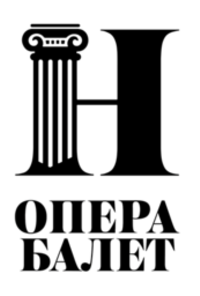The Miserly Knight
In 1830, during the Boldin autumn, Alexander Pushkin wrote four short plays, combining them into a single cycle. The poet suggested several titles for it, but the publishers chose "Small Tragedies". In each of the plays — the fate of a person, compressed to a momentary flash of tormenting passion. "Perhaps in none of the works of world poetry are the terrible questions of morality posed so sharply and complexly as in Pushkin's" Small Tragedies". This complexity is sometimes so great that due to the dizzying laconism, it even seems to obscure the meaning and lead to different interpretations...", wrote Anna Akhmatova. It is not surprising that Russian composers became interested in" Tragedies " in search of new operatic forms. The result was four one-act operas: The Stone Guest by A. S. Dargomyzhsky (1868), Mozart and Salieri by N. A. Rimsky-Korsakov (1897), A Feast during the Plague by C. A. Cui (1900), and The Miserly Knight by S. V. Rachmaninoff (1904).
The opera "The Miserly Knight" became the second work of this genre out of three in the work of Sergei Rachmaninoff. He has already written "Aleko" based on Pushkin's poem "Gypsies", which, despite the fact that it was a graduate thesis of the conservatory, was successfully performed on stage. Simultaneously with the" Miserly Knight "Rachmaninoff created" Francesca da Rimini " based on an episode from Dante's Divine Comedy. These operas, like Pushkin's plays, like a large mirror, make a person look at his real reflection with mistakes and passions, truth and lies.
Like his predecessors, Rachmaninoff preserved almost the entire text of Pushkin in The Miserly Knight, allowing only small abbreviations and correcting the names of the characters.
Having started the opera in the summer of 1903, in February 1904 the composer completed the clavier of the composition. On January 4, 1906, " The Miserly Knight "was performed in the program of the musical" Wednesday " in the house of N. A. Rimsky-Korsakov. The first performers were Rachmaninoff's friend, singer Fyodor Chaliapin, and pianist Felix Blumenfeld. The audience's opinion was not clear. Rimsky-Korsakov noted that " the opera's music is very talented. There are very strong, vivid dramatic moments. The scene of the Baron admiring the accumulated gold is remarkable. But in general, the almost continuously flowing dense fabric of the orchestra suppresses the voice. The main focus of the composer is in the orchestra, and the vocal part seems to be adapted to him."
The premiere of "The Miserly Knight" still took place at the Bolshoi Theater on January 11, 1906 under the direction of the author and was a great success. A year later, in 1907, Chaliapin performed the Baron's monologue at his concert. And in 1912, The Miserly Knight returned to the Bolshoi Theater.
In 1943, at the Nizhny Novgorod (Gorky) Opera and Ballet Theater, Rachmaninoff's opera was staged by an outstanding opera director, then artistic director of the theater Boris Pokrovsky.
"The Miserly Knight" is not a frequent guest of opera scenes around the world. The complexity of the vocal parts and the orchestra's rich, dramatic symphony canvas are a combination that presupposes the highest professional level of performers.
Pushkin concludes his "Little Tragedy" with the famous phrase " Terrible century, terrible hearts!". Rachmaninoff did not include these words in the opera, but the symphonic drama of The Miserly Knight never lets us forget their meaning.
Shylock Suite
French composer Gabriel Faure was called "the French Schumann" and "the mellifluous Orpheus"by his contemporaries. Debussy said that Faure was a "Master of charms", and the French composer and critic P. Duca claimed that " ... his art reflected himself... Faure easily and with inimitable grace subordinates every external impression to her inner harmony." It is not surprising that Faure's theatrical music attracted the attention of fans and colleagues.
In 1889, the composer wrote music for the drama by E. Arocourt "Shylock", created based on the play by W. Shakespeare"The Merchant of Venice". It premiered at the Odeon Theatre in Paris in December 1889. "Shylock" passed 56 performances, which was very significant for that time. A year later, Faure combined six numbers of theater music into a suite, significantly expanding the orchestra's composition and introducing the tenor part. The" highlight " of the suite is considered to be No. 5 Nocturne, which accompanied the scene of a love rendezvous in the performance. It was written after Faure's brief stay at the country house of his patroness, the Viscountess Greffule.: "I was looking for the most interesting musical phrase "Venetian Moonlight" for Shylock, and I found it! It was inspired by the air of your park." The suite was first performed on May 17, 1890, at a concert of the National Musical Society in Paris with the participation of tenor Julien Leprestra and the orchestra of the society conducted by Jean Gabriel-Marie.
Faure had a habit of going back to his works and editing them. So it was with the Shylock . In 1894, the melody from "Nocturne "formed the basis of a Romance for cello and piano, and in 1897 the composer arranged the numbers with the vocal part" Chanson "and" Madrigal " for voice and piano.
In 1967, instrumental music from the Shylock Suite was included in the score of J. Balanchine's ballet Jewels.


